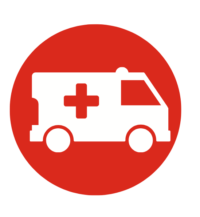Caring for your child with gastroenteritis
Accessible leaflets
This page contains legacy leaflets in PDF format which may not fully comply with Web Content Accessibility Guidelines (WCAG).
Please see the leaflet library index for accessible leaflets.
What is it?
Gastroenteritis is an upset tummy that can cause diarrhoea and/or vomiting. It is caused by viruses, is often mild and can usually be managed at home.
- Your child may first have tummy ache and fever
- Most children with diarrhoea and vomiting get better very quickly, but some children can get worse.
- Diarrhoea usually lasts five to seven days but may continue for up to two weeks.
- Vomiting usually does not last for more than three to four days.
Caring for your child at home
Reducing fever and pain relief for tummy aches
- Liquid paracetamol and ibuprofen can be given according the instructions on the bottle (Ibuprofen is not recommended if your child has asthma unless you have discussed with the doctor)
Keep a record
- It is useful to keep a record of the number of drinks and
- the number of wees/ wet nappies that your child/baby has had each day. The Children’s Nurses (CCN) will ask you about this when they call.
Preventing Dehydration
It is very important to follow the advice below to prevent dehydration in your baby/child;
One of the main risks of gastroenteritis in children, especially babies, is that they may become dehydrated
- It is important to replace fluid your child will be losing due to vomiting and/or diarrhoea.
- It is OK if they do not want to eat. Drinks are most important, and most will start eating when they feel better.
- Continue to breast/bottle feed your baby.
- For a child under one, give small sips every few minutes (using a teaspoon or a plastic syringe and aim fluids into side of mouth to ease swallowing) Your CCN/Doctor will advise you how much and how often
- For all children, give drinks little and often e.g. every 10 mins (or as advised by the CCN/Doctor). If they are thirsty and take too much at a time, it may cause them to vomit.
- For older children, try using ice lollies or encourage drinking through a straw.
- Unwell children will often refuse fluids, but can be persuaded if you persevere
- Oral rehydration solution such as Diaorlyte or Electrolade should not be used in infants under three months without agreement from the doctor
Type of fluids
- Good fluids Oral rehydration sachets, water, squash (not sugar free), milk
- Bad Fluids Juice, fizzy drinks which make diarrhoea worse
Signs of Dehydration
- Dry mouth
- Dry tongue and lips
- Less tears when crying
- Sunken eyes
- Passing less urine than normal
- Weakness
- Being irritable or lethargic
Worried about your child?
Use traffic light advice

GREEN: If your child has none of the symptoms in the amber or red categories, continue to look after them at home
Continue to follow your CCN Hospital@Home advice

AMBER: If your child has ANY of these
- Appears to be getting worse or if you are worried
- OR is getting more thirsty despite drinking
- OR is not drinking
- OR has signs of dehydration (see above)
- OR blood in their poo
- OR 6+ bouts of diarrhoea in 24 hours
- OR 3+ vomits in 24hrs
- OR has a high temperature
- OR is in constant pain
YOU NEED TO SEEK MEDICAL ADVICE: Please call CCN H@H on 01865 902700 8am to 8pm, 7 days a week Or GP Out of Hours via NHS111

RED: If your child has signs of dehydration AND becomes unresponsive
- OR is breathing faster than usual
- OR has unusually pale or mottled skin
- OR has colder hands and feet than normal
YOU NEED EMERGENCY HELP CALL 999: You need to be seen at an emergency department (A&E)
General guidance: Contact us
Oxford Health NHS Foundation Trust, Trust Headquarters,
Littlemore Mental Health Centre, Sandford Road, Littlemore, Oxford OX4 4XN
- Switchboard: 01865 901 000
- Email: enquiries@oxfordhealth.nhs.uk
- Website: www.oxfordhealth.nhs.uk
Become a member of our Foundation Trust: www.ohftnhs.uk/membership
Page last reviewed: 15 July, 2022
